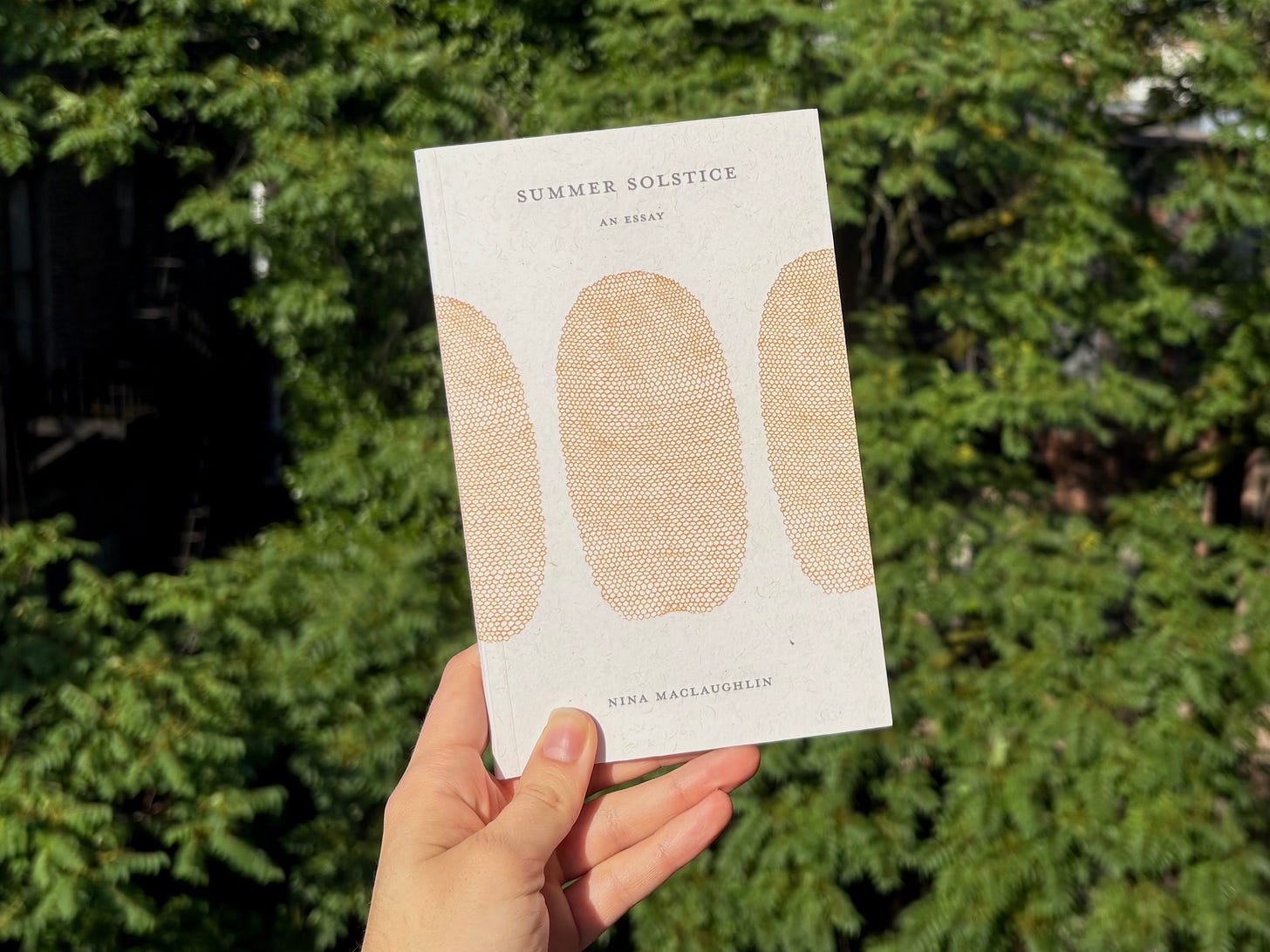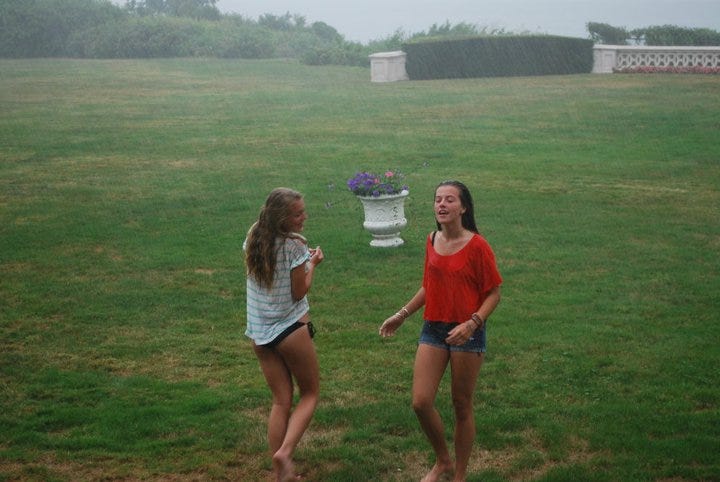The Time We Have Now
Summer Solstice by Nina MacLaughlin
As I write, tomorrow is the summer solstice, the longest day of the year. As you read, that day is today.
I think I’ll try to be awake for all of it. The day that is. This will mean rising at 5:25am, which might necessitate a nap midday, in which case I wouldn’t be awake for all of it, but at least I’d be awake when it arrives. The day that is. I will be awake for the end of it at 8:31pm, and then likely for many more hours after. I’ll be at a party.
The solstice is the beginning of summer for me—longtime readers will know that I started observing the solstices and equinoxes three years ago, and it’s really transformed my view of the seasons. It is the least arbitrary method of definition as far as I’m concerned. Saying that summer starts on Memorial Day, or June 1st means absolutely nothing. Saying that it starts on the Solstice (June 20, 21 or 22 depending) means very much. This year, the weather has cooperated with my view of things. After no spring at all and fits and starts, and just now about ten days of sixty degree weather, it is well and truly hot in New York.
This week, I picked up Nina MacLaughlin’s essay in book form, Summer Solstice. Aptly named, it is a mesmerizing exploration of the arrival of summer and what the seasonal transition has meant and continues to mean to us. It is a piece of love and fear. It’s twin to her equally worthwhile Winter Solstice, which I delighted in a couple years ago.
Here, she begins with the ways that we all define summer a little differently—the ways that we recognize it’s coming. She dedicates a section to swimming and the restorative, regenerative power of water. She speaks to the heat and the headiness, the sex and the unseriousness of it all. There’s ocean swimming versus lake swimming, summer camp shooting stars, and fat blackberries at your grandmother’s. Throughout, she weaves in the threads of tradition, the maypole, the bonfires, the festivals. Floating a flower crown across the river to see who your love might be, rolling around in the hay, jumping over the flames.
Yes! As she exclaims, “we will never have more time than we have now!” But at the end of her essay, in the final section, “Summer is Made of the Memory of Summer,” MacLaughlin must address the whining out of place hum that’s been faintly perceptible throughout her song of summer: the death problem. As I said, placing the start of summer on the solstice means very much. It is the longest, lightest day of the year, but it is a light that’s getting darker.
Just as the turn of winter—the darkest, most difficult season—contains the hope of continually lightening days, the living frenzy of each new summer contains an ominous note of impending death and darkness. As MacLaughlin so startlingly puts it, the summer solstice gives us “one second more daylight than the day before. The next day will be two seconds shorter.”
What this means is that summer is a not real. It does but doesn’t exist. Summer is what we think it is, life and time and fun to be had in it, but it is also this other thing. Rot and decay and time running out. It is a memory already. This is the duality that we are forced to live with, and it’s not so awful that each season contains the next, like a never ending set of nesting dolls, so long as we have faith that the circle will remain unbroken. Which I, for the record, do.
As I wrote this, thunder cracked and the sky opened up. It began to pour, so I put my potted oakling out on the fire escape and opened the living room window to better hear the rain and thunder. Much as MacLaughlin admits in her afterward, I too must admit that summer is not my favorite season. I am a winter creature, but what she says is true, summer is made of the memory of summer, not just on the natural or collective level, but the individual as well.
The rain makes me remember summer and so makes it summer now. I fell in love in the summer, hot and sticky. It will be one hundred degrees on Tuesday, and that makes me want to lick the sweat off my lover’s upper lip. Last summer, we got caught in Ridgewood in a storm like this and showed up to dinner soaking wet.
When I was younger and spent the summers in Rhode Island, I would dash out into the summer rain, and still I’m tempted whenever the sky is open like this. There’s the familiar magnetic pull, but it’s clearing now, the sun coming back to sizzle water off the rooftops. It will rain again, and I will dash out into it the next time.




What a beautiful ode to summer. It is winter for me, in this southern part of the world and the sky is dark and rain falls too often. I am cheered by the memory of summer, and the hope of the one to come. This is a beautifully contemplative piece, and I will have to get my hands on this book too.
Summer is made of the memory of summer :,)